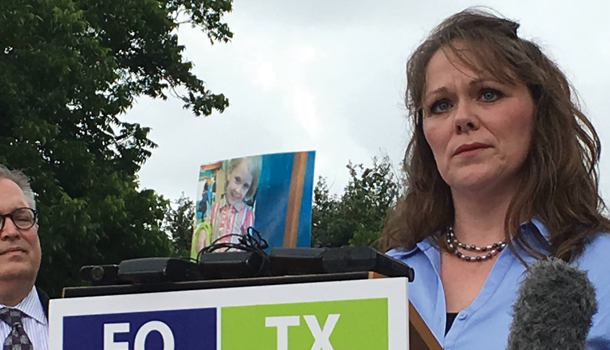
Bathroom Bill Dies, But Not Potty Politics

In wake of special session, Texas LGBTQ advocates warn that anti-trans legislation isn’t going away.
By Ryan M. Leach
Anti-transgender bathroom legislation was once again flushed during Texas’ special legislative session that ended August 15.
However, Equality Texas CEO Chuck Smith warned that while this battle may have been won, the war is far from over.
“Proposed legislation like ‘bathroom bills’ are not going away—at least not until proponents of such legislation fully understand that the majority of Texans do not support discriminating against their fellow Texans,” Smith told OutSmart.
After the Texas Legislature’s biennial 140-day regular session ended in May, governor Greg Abbott called lawmakers back to Austin for the 30-day special session. Under the Texas Constitution, only the governor has the authority to call a special session and to set the agenda for what may be considered. Although special sessions are not uncommon in Texas, they’ve historically been limited to relatively few topics. But this time, Abbott listed 20 items, including bathroom bills.
Before any other legislation could be debated, Abbott insisted on the passage of a “sunset” bill allowing crucial state agencies to continue operating. Once this was accomplished, the House and Senate were allowed to tackle the remaining 19 items. The ultra-conservative Senate quickly got to work and passed all of Abbott’s items in the special session’s first two weeks.
Senator Lois Kolkhorst (R-Brenham) again authored anti-trans bathroom legislation that would have prohibited cities and school districts from enforcing policies that allow trans people to use restrooms based on their gender identity. Her bill would have nullified local ordinances that protect trans people against discrimination in cities including Austin, Dallas, and San Antonio.
The Houston City Council passed a similar ordinance in 2015, but it was later repealed by voters.

Kolkhorst’s legislation, known as Senate Bill 3 in the special session, would have severe consequences for trans Texans like Pearland elementary-school student Kai Shappley. The Pearland district has prohibited Kai from using girls’ restrooms. Kai’s mother, Kimberley Shappley, says her daughter once urinated on herself while teachers debated which restroom she should use. The Shappleys have been among the most visible faces in the bathroom-bill debate, with their story featured by several national media outlets.
“While we are truly thankful the Texas Legislature’s special session ended without a bathroom bill, the reality is that my daughter Kai has started her first day of first grade segregated from her peers—again,” Shappley said as Pearland’s 2017–18 school year commenced August 21.
The bathroom bill was the most prominent wedge issue between the Senate, led by socially conservative lieutenant governor Dan Patrick, and the House, led by the more moderate Republican speaker Joe Straus. Patrick and Abbott continuously accused Straus of stalling their agenda, even though the bathroom bill was also opposed by the state’s business community that Republicans across the spectrum have typically supported.
The conservative Texas Association of Business, the state’s chamber of commerce, came out forcefully against anti-LGBTQ legislation in both the regular and special sessions. However, the special session brought new players to the table as CEOs from dozens of major corporations—including oil and gas industry leaders in Houston—expressed their opposition in letters to Abbott.
Mayors from the state’s major cities, including Houston, also opposed bathroom bills for both economic and moral reasons, but Patrick and Abbott seemed to dig in their heels as the special session neared its close. Abbott began a “20 for 20” campaign to drum up support for the complete passage of his agenda. In the end, only half of his 20 items passed, including three bills putting further restrictions on access to abortion.
Abbott hasn’t ruled out a second special session, but at press time it seemed unlikely. The main focus for Abbott and Patrick now appears to be ousting Straus, who has filed to run for a fifth term as speaker in 2019.
On August 17, the House Republican Caucus discussed changing the rules for electing the speaker. Under current rules, the speaker is elected by a majority of all House members, and Straus has maintained his position thanks to support from Democrats. But proposed new rules would require that the speaker receive approval from the majority party’s caucus.
Both Smith and Shappley said they hope the legislative theatrics of 2017 will influence Texas voters at the ballot box.
“The majority of fair-minded Texans—including the business community and mainstream people of faith—need to engage in the next election cycle to ensure that reasonable people are elected who care about solving the real and pressing issues we as Texans face,” Smith said. “We cannot, and must not, allow extremists to use vulnerable children and adults as pawns in their perverse pursuit of political power.”
Shappley encouraged people to get involved with Equality Texas and other LGBTQ advocacy groups.
“I know we are all tired of hearing about bathrooms, but please don’t stop now,” she said. “We still need you.”










